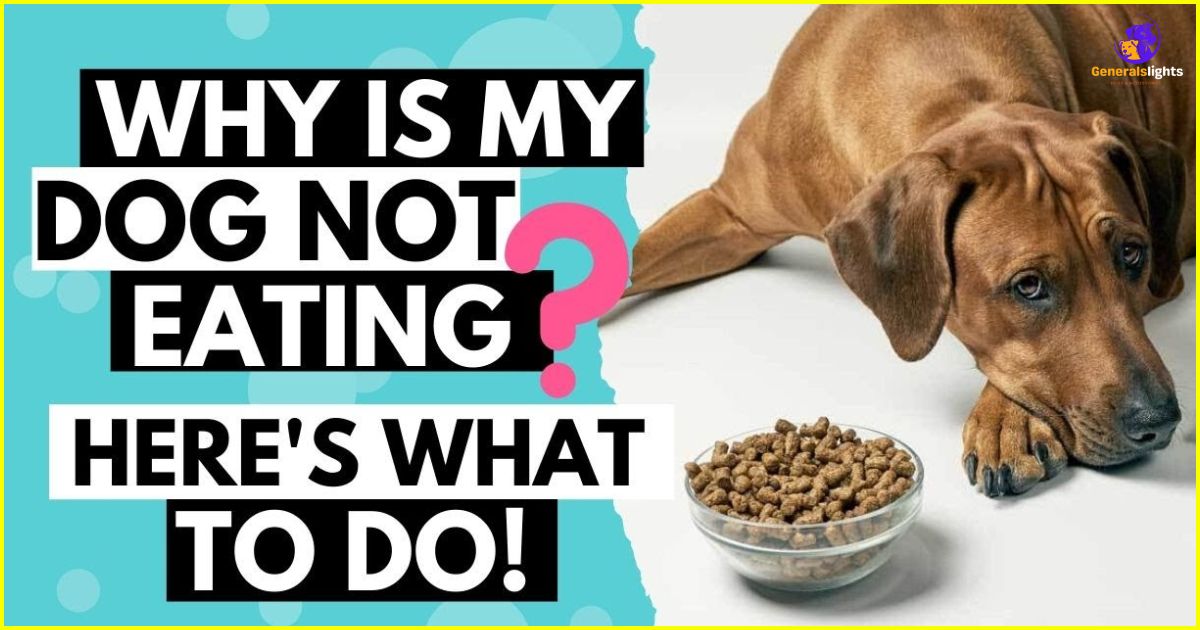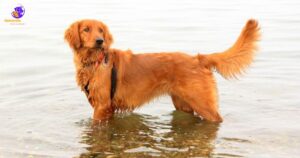If your dog suddenly stops eating or drinking, it could signal an underlying health problem. Early attention is critical to avoid serious complications.
Are you worried because your dog isn’t touching its food or water? This could be more than a picky eating phase. Learn how to spot the signs and when it’s time to act. Don’t wait—find out what to do next!
If your dog isn’t eating or drinking, it might suffer from dehydration, illness, or stress. Keep a close eye on its behavior and consult a vet if it refuses food or water for more than 24 hours. Symptoms like vomiting, lethargy, and weight loss can be serious signs that require immediate medical attention.
Why is My Dog Not Eating or Drinking?
There are several reasons why your dog might stop eating or drinking. It could be related to a medical condition, such as an upset stomach, dental pain, or an infection. Sudden changes in appetite should always be monitored closely to prevent dehydration or malnutrition.
Stress, anxiety, or environmental changes can also affect your dog’s eating habits. New surroundings, changes in routine, or loud noises can make your dog feel uneasy, causing them to lose interest in food and water. Pay attention to their environment and behavior for clues.
What Causes a Dog to Stop Eating?
Illness is one of the most common causes of a dog losing its appetite. Conditions like gastrointestinal issues, kidney disease, or infections can make eating uncomfortable or painful for your dog. If they avoid food for more than a day, it’s crucial to consult your vet.
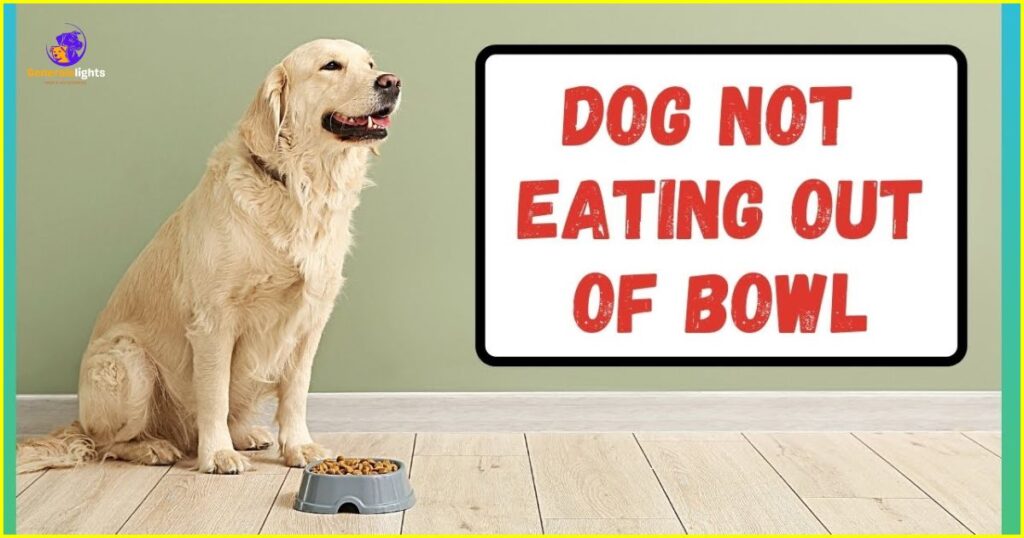
Emotional factors like stress or anxiety can also cause a dog to stop eating. Significant changes in their daily routine, a new pet in the house, or the loss of a companion might lead to food refusal. Watch for other signs like pacing, whining, or isolation.
Possible Medical Reasons Why Dogs Stop Eating
Gastrointestinal problems like stomach infections or inflammatory bowel disease can cause discomfort, leading to a loss of appetite. You may also notice vomiting or diarrhea alongside a lack of interest in food.
Dental issues, such as tooth infections, gum disease, or broken teeth, can make eating painful. A quick check of your dog’s mouth might reveal the source of their discomfort. Pain from other conditions, like arthritis or injuries, can also impact eating habits.
What Causes a Dog to Stop Drinking?
Your dog may stop drinking water due to dehydration, which could be caused by an underlying medical issue like a urinary tract infection or kidney disease. Dogs that are vomiting or have diarrhea are more prone to dehydration and may refuse water.
In some cases, a dog might refuse to drink because of environmental stressors, such as unfamiliar surroundings, heat, or loud noises. If they’re still eating but not drinking, keep an eye on their hydration levels and consider offering ice cubes or broth as alternatives.
How Stress Affects Your Dog’s Appetite
Stress can have a significant impact on your dog’s eating habits. Moving to a new home, introducing new pets, or loud noises like fireworks may cause anxiety. A stressed dog may avoid food or water, so it’s essential to maintain a calming environment.
Dehydration in Dogs: Signs and Symptoms
If your dog isn’t drinking, dehydration can become a concern. Look for symptoms like dry gums, lethargy, and sunken eyes. Encourage your dog to drink, but if they refuse for over 24 hours, it’s time to see the vet.
The Role of Dental Health in Your Dog’s Appetite
Poor dental health can make eating painful for dogs. Check for red or swollen gums, broken teeth, or bad breath. If you suspect dental issues, your vet can recommend treatment to ease the pain and help restore your dog’s appetite.
Changes in Environment Impacting Your Dog’s Eating Habits
New environments or changes in routine can disrupt your dog’s eating and drinking habits. If you’ve recently moved or altered your dog’s schedule, try to maintain consistency to help them feel more comfortable and restore their appetite.
Can Weather Affect Your Dog’s Appetite?
Extreme temperatures, especially heat, can reduce your dog’s desire to eat. In hot weather, they may prefer drinking over eating. Ensure they have access to fresh water at all times and offer smaller, more frequent meals.
How Anxiety Can Cause Dogs to Stop Eating
Just like humans, dogs can lose their appetite due to anxiety. Thunderstorms, separation from their owner, or other stressors may cause them to stop eating. Watch for other anxiety-related behaviors, like trembling or hiding.
How Age Affects Your Dog’s Appetite
Senior dogs often have reduced appetites due to a slower metabolism, dental issues, or underlying health problems like arthritis. Ensure their diet is suitable for their age and that they’re still getting the nutrition they need.
The Importance of Hydration for a Healthy Dog
Staying hydrated is crucial for your dog’s overall health. Offer water in different bowls or provide ice cubes to encourage them to drink. If your dog isn’t drinking, especially in hot weather, dehydration could set in quickly.
Possible Medical Reasons Why Dogs Stop Eating
Medical conditions can directly affect your dog’s appetite. Common issues include kidney disease, liver problems, or even infections that cause nausea. If your dog has underlying health concerns, they may stop eating because of discomfort or pain.
Parasites, such as worms, are another cause of appetite loss in dogs. Heartworm, roundworm, or other parasites can cause digestive upset, leading to food avoidance. Regular vet checkups can help detect and treat these problems early.
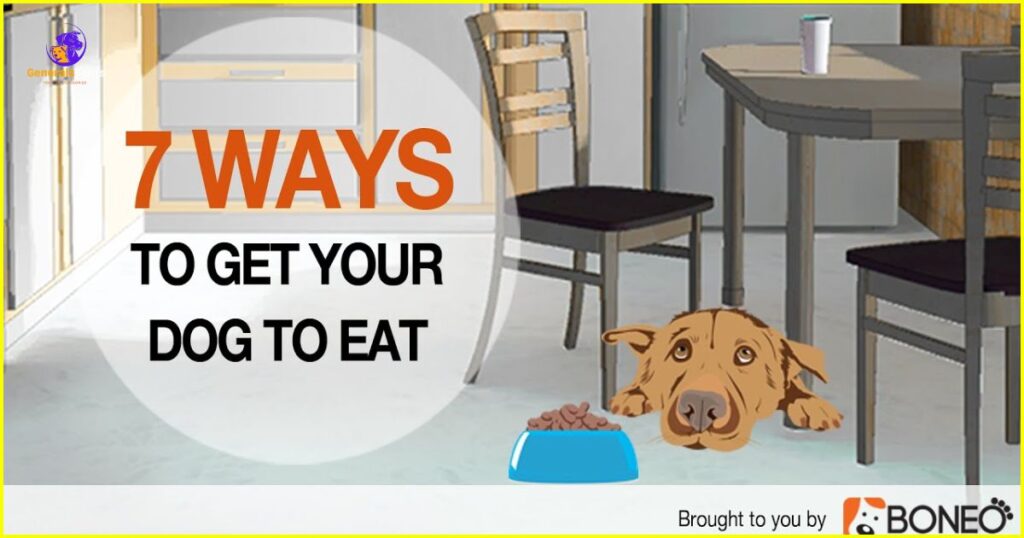
| Possible Medical Causes | Symptoms |
| Gastrointestinal Issues | Vomiting, diarrhea, abdominal pain |
| Dental Problems | Swollen gums, bad breath, difficulty eating |
| Kidney Disease | Frequent urination, lethargy |
| Liver Problems | Jaundice, vomiting, loss of appetite |
| Parasites | Weight loss, bloating, diarrhea |
| Infections | Fever, lethargy, refusal to eat |
Possible Behavioral Reasons Your Dog Isn’t Eating
Dogs may stop eating due to behavioral changes. Stress, anxiety, or a sudden change in their daily routine can make your dog lose interest in food. Introducing a new pet or even moving to a new home can contribute to this.
If your dog is a picky eater, they might refuse certain foods due to texture or taste preferences. This can happen suddenly, especially if they’ve been fed human food or too many treats. Consistency with their diet is important to avoid such issues.
- Separation Anxiety: When left alone, your dog might stop eating due to anxiety.
- Stressful Situations: Fireworks, thunderstorms, or loud noises can make your dog avoid food.
- Changes in Routine: Sudden changes in feeding times or schedules can lead to food refusal.
- Boredom with Food: Eating the same meal every day might bore your dog, leading to food refusal.
- Too Many Treats: Overfeeding treats can spoil your dog’s appetite for their regular meals.
- Negative Associations with Food: If they feel sick after eating a certain food, they might avoid it in the future.
- Picky Eating Habits: Some dogs can develop finicky eating habits, making them refuse certain foods.
- Attention Seeking: Some dogs may refuse food to get attention from their owners.
Possible Environmental Reasons Your Dog Isn’t Eating or Drinking
Changes in the environment can play a significant role in your dog’s eating habits. For instance, moving to a new home, loud noises, or even temperature changes can cause stress, making them reluctant to eat or drink.
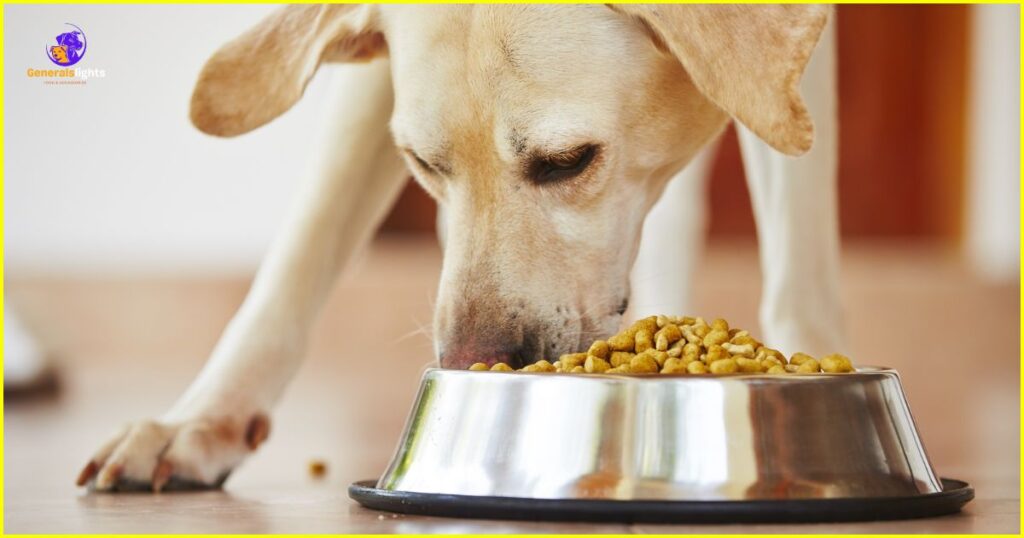
Environmental factors such as hot weather can reduce your dog’s appetite, while cold weather might lead to a decrease in water intake. It’s essential to monitor these changes closely and offer fresh food and water in different locations to encourage them.
Moving to a New Home Can Cause Appetite Loss
Moving can be a stressful experience for your dog. New smells, unfamiliar surroundings, and a disrupted routine might lead them to lose interest in food and water. Create a calming space and stick to a consistent feeding schedule to help them adjust.
How Loud Noises Impact Your Dog’s Appetite
Fireworks, thunderstorms, or construction noises can make your dog anxious, which often results in them refusing food or water. During these times, try to create a quiet, comfortable environment for your dog to feel safe.
How Heat Affects Your Dog’s Eating Habits
In hot weather, your dog might prefer drinking water or overeating. Ensure they have plenty of fresh water and avoid exercising them during the hottest parts of the day to prevent heat stress and dehydration.
Changes in Routine Can Cause Food Refusal
A sudden change in your dog’s feeding schedule or daily routine can confuse, leading to appetite loss. Dogs thrive on consistency, so try to feed them at the same times every day and avoid drastic changes in their environment.
New Pets in the House Can Disrupt Eating Habits
Introducing a new pet to the household can make your dog feel anxious or competitive over resources, leading to them avoiding food or water. Ensure each pet has their own space and feeding area to reduce tension.
Is Your Dog Drinking, but Not Eating?
If your dog is drinking water but refusing food, it may indicate a less serious issue. They could be experiencing mild gastrointestinal discomfort or temporary stress. In these cases, their appetite should return within a day.
However, if this behavior continues for more than 24 hours, it’s important to consult your vet. Dental problems, nausea, or other underlying conditions could be to blame. Always monitor for additional symptoms like lethargy or vomiting.
What to Do When Your Dog Won’t Eat or Drink
If your dog refuses to eat or drink, start by checking for any immediate symptoms of illness. Look for signs like lethargy, vomiting, or diarrhea, which could indicate an underlying health issue. In such cases, a vet visit is essential.
You can also try encouraging your dog by offering fresh water, different foods, or even ice cubes. Sometimes a change in diet or temperature can help. However, if your dog hasn’t eaten or drank anything for over 24 hours, seek veterinary advice immediately.
Monitoring Your Dog’s Symptoms
Keep an eye on your dog’s behavior and physical symptoms. If they seem sluggish, vomit, or have diarrhea, it might indicate a more serious problem. Write down any abnormal behaviors to share with your vet.
Offering Fresh Water
Make sure your dog always has access to clean, fresh water. Sometimes, dogs will refuse to drink if their water bowl is dirty or the water is old. Offer water in a new bowl or try giving them ice cubes to encourage hydration.
Trying Different Foods
If your dog won’t eat, try offering a bland diet such as boiled chicken or rice. You can also experiment with different textures or flavors to see if they prefer something else. Avoid giving too many treats, as this can spoil their appetite for regular meals.
Creating a Calming Environment
Stress can cause your dog to refuse food or water. If they’ve experienced changes in their environment, like a move or a new pet, create a peaceful space for them to relax. Calming scents or music can also help.
Checking for Dental Issues
Dental pain could be the reason your dog isn’t eating. Examine their teeth and gums for signs of redness, swelling, or broken teeth. Dental issues can make it painful to chew, so soft foods may be more manageable.
Adjusting Your Dog’s Routine
Dogs are creatures of habit, and a sudden change in routine can throw off their appetite. Try feeding them at the same time every day and ensure they have a consistent schedule to follow, as this can help restore normal eating patterns.
Observing Your Dog’s Hydration Levels
Dehydration can be dangerous. If your dog isn’t drinking, check for signs like dry gums, lethargy, or sunken eyes. You can also gently pinch the skin at the back of their neck; if it takes time to return to its normal position, they may be dehydrated.
Consulting a Veterinarian
If your dog hasn’t eaten or drank anything in 24 hours, call your vet. They’ll be able to run diagnostic tests to determine if there’s an underlying medical issue and provide the necessary treatment to get your dog back to normal.
What’s the Treatment for a Dog Not Eating or Drinking?
Treating a dog that refuses to eat or drink depends on identifying the root cause. A thorough vet exam is the first step, where diagnostic tests like blood work or imaging may be performed. The treatment plan will vary depending on the condition, but timely intervention is critical.
In mild cases, supportive care such as offering fluids, adjusting their diet, or administering medications may be enough. For more severe cases, hospitalization and IV fluids might be necessary. Always follow your vet’s guidance closely to ensure a quick recovery.
Figuring Out Why Your Dog’s Not Eating or Drinking
Understanding the cause behind your dog’s loss of appetite is the key to finding the right treatment. Start by examining their environment, routine, and overall health to identify any potential triggers. Make sure to monitor:

- Changes in environment
- Stress or anxiety
- Illness or infection
- Dental problems
- Recent vaccinations
- New foods or diet changes
Treatment and Supportive Care for Your Dog
Once the cause of your dog’s loss of appetite or thirst is identified, your vet will recommend the appropriate treatment. Supportive care may include medications, a change in diet, or fluid therapy, depending on the severity of the issue. Use the table below for common treatments:
| Issue | Treatment Options |
| Dehydration | IV fluids or subcutaneous fluid therapy |
| Dental problems | Pain relief, dental cleaning, soft foods |
| Gastrointestinal upset | Bland diet, anti-nausea medications |
| Stress or anxiety | Calming aids, anxiety medication |
| Illness or infection | Antibiotics or other necessary medications |
| Nutritional issues | Adjusting the diet, adding supplements |
FAQs
Why is my dog not eating or drinking?
There could be several reasons, including illness, stress, or dental problems. If this lasts for more than 24 hours, consult your vet.
Should I be concerned if my dog skips a meal?
It depends on the dog’s usual eating habits. If skipping meals is unusual, monitor their behavior and consider seeing a vet.
Can stress cause my dog to stop eating or drinking?
Yes, stress from changes in the environment or routine can lead to a loss of appetite. Try to create a calming atmosphere for your dog.
How can I encourage my dog to eat again?
You can try offering different types of food, such as boiled chicken or rice, or even add low-sodium broth to their water.
What are the signs my dog is dehydrated?
Signs of dehydration include dry gums, lethargy, and sunken eyes. If you notice these symptoms, contact your vet immediately.
Conclusion
If your dog refuses to eat or drink, it’s crucial to understand the potential causes. Whether it’s a medical, behavioral, or environmental issue, timely action can help your pet recover faster.
Monitoring your dog’s symptoms and offering supportive care can improve their condition. But if the problem persists, don’t hesitate to seek veterinary care to ensure your dog gets the treatment they need.
- Also Read Must:
- Is Your Dog Flinching When You Pet Him? Causes, Concerns, & What to Do
- 11 Worst Dog Food Brands and Why

Emerson is an expert in the world of pets, specializing in understanding diverse breeds, nutrition, and health. His deep knowledge ensures your pets receive the best care, from balanced diets to top-notch health advice, keeping them at their happiest and healthiest.
